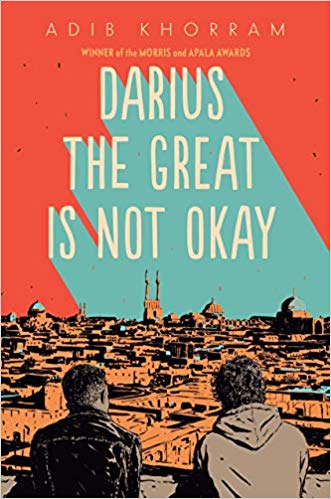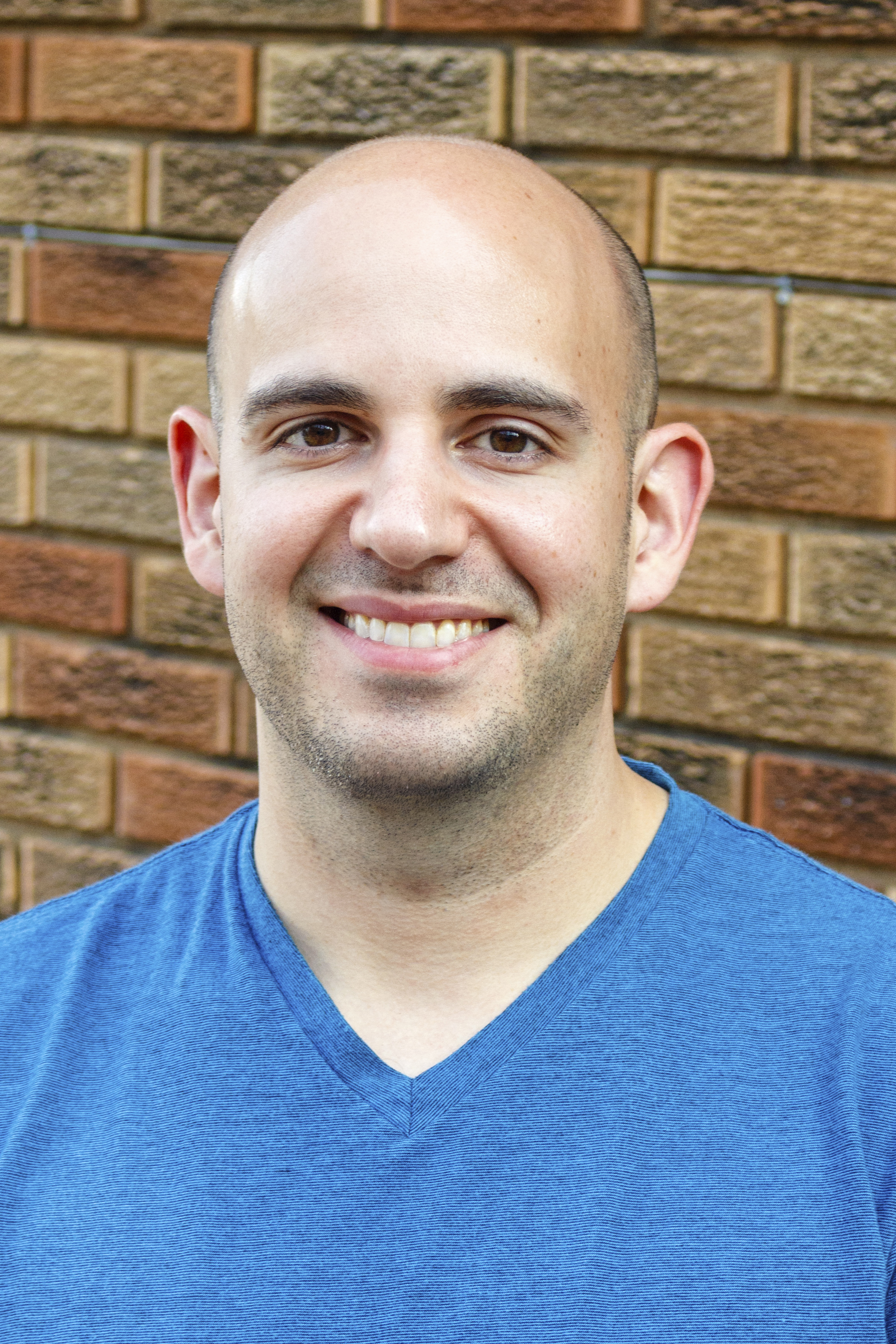Adib Khorram is the author of Darius the Great is Not Okay, the winner of the 2018-2019 APALA Literature Award for Young Adult Literature. It is available from your local library, Powell’s Books, and local bookstores. He is interviewed here by APALA member Molly Higgins.
Molly Higgins (MH): Please introduce yourself and briefly describe your literary work and career path to date.
Adib Khorram (AK): I’m Adib Khorram, I use he/him/his pronouns, and I’m the author of Darius the Great Is Not Okay. It’s my debut novel and the one that got me my agent, Molly O’Neill at Root Literary. Before writing novels, I tried my hand at writing screenplays; and before that, I thought I wanted to be a theatrical lighting designer, but it turns out I didn’t.
MH: In Darius the Great is Not Okay, the reader gets an inside look into Darius’ habits and thought process as he manages his depression. How important is it to be able to talk openly about depression and living with it?
AK: It’s vitally important, because when you talk about depression (and mental health in general), you destigmatize it. When you remove the stigma from it, treatment becomes far more likely.
MH:Darius and Sohrab’s friendship is so intense that in many ways, at least to me, it reads as a romance. Can you speak more about the way that you envision their friendship?
AK: When I was a teenager, all of my most important relationships were friendships. I wanted to show that friendship can be every bit as transformative as romantic love.
There is an intensity to their friendship that can feel unfamiliar to Western readers. In Iran and other countries in Southwest Asia, displays of platonic affection are far more common: men can hold hands with other men and walk down the street, and it’s seen as a normal thing that friends do. Darius is going from a culture steeped in toxic masculinity and “no homo” male bonding to one that accepts touch as a normal part of friendship.
All that being said, I did write Darius as queer, and I feel like I wrote in more than one kind of love when it comes to Sohrab. At the end of the day, books belong to readers. But for me, personally, it’s really the love story of their friendship (to quote my agent).

MH:As an American and a mixed race Persian, Darius’s lack of knowledge about Persian culture and foods, like sekanjabin, gives the reader a chance to learn about Persian culture, too. How do you choose how much to explain, or not explain, about aspects of Persian culture in your book?
AK: As a mixed-race Iranian-American myself, I mostly pulled from my own experiences. Growing up bi-cultural, you get an interesting perspective on your own cultures. You learn some things but not others; and you draw inferences that are sometimes surprisingly accurate and sometimes woefully off. My excellent editor, Dana Chidiac, helped with this process as well; we were very intentional as we worked at defining where Darius left things unsaid and where he explained. Often, it was him explaining something to himself as much as he was to the reader.
MH:Speaking of mixed race, I see far more mixed race protagonists now that I did when I was growing up as a mixed race Asian American. Was it important to you that Darius be mixed race, and if so, why?
AK: I don’t know if important is the word; it was something intrinsic to his entire character. Without that tension of being mixed-race and, perhaps more crucially, mixed-culture, there would be no Darius.
MH:We’re always looking for more to read. Who are five authors we should we be reading? Why?
AK: Oh my goodness. This is a hard one, so I’m going to stick to books coming out this year.
I’m excited for Julian Winters’s How to be Remy Cameron, which I think fans of Darius will love. I’m eagerly waiting for Red Skies Falling, Alex London’s sequel to Black Wings Beating, which takes place in an awesome fantasy world of falconry. And another fantasy I’m eager for is Natalie C. Parker’s Steel Tide, the follow-up to last year’s Seafire, which I’m obsessed with!
One of my favorite books of 2019 is Lana Wood Johnson’s Technically, You Started It, a hilarious mistaken-identity romcom that takes place entirely over text messages.
And in the adult sphere, I’m obsessed with Martha Wells’ The Murderbot Diaries series of novellas, and I’m eagerly awaiting the forthcoming full-length novel.
MH: You’re being interviewed by a librarian, for an audience of progressive Asian American librarians. What are your thoughts on libraries, and their place in building diverse communities?
AK: Growing up I didn’t use my library that much, and I think that’s because I didn’t enjoy reading that much. There were never stories about kids like me. But today I use the library all the time, and I’m so grateful kids have a wealth of stories available to them. Libraries and librarians in particular are the ones building connections between readers and books. The right book can change a person’s life, and that’s an awesome responsibility.
You can find Adib Khorram on Twitter @adibkhorram, Instagram @adibkhorram, Tumblr at @adibkhorram, or on the web at adibkhorram.com
Editing assistance provided by Molly Higgins.

